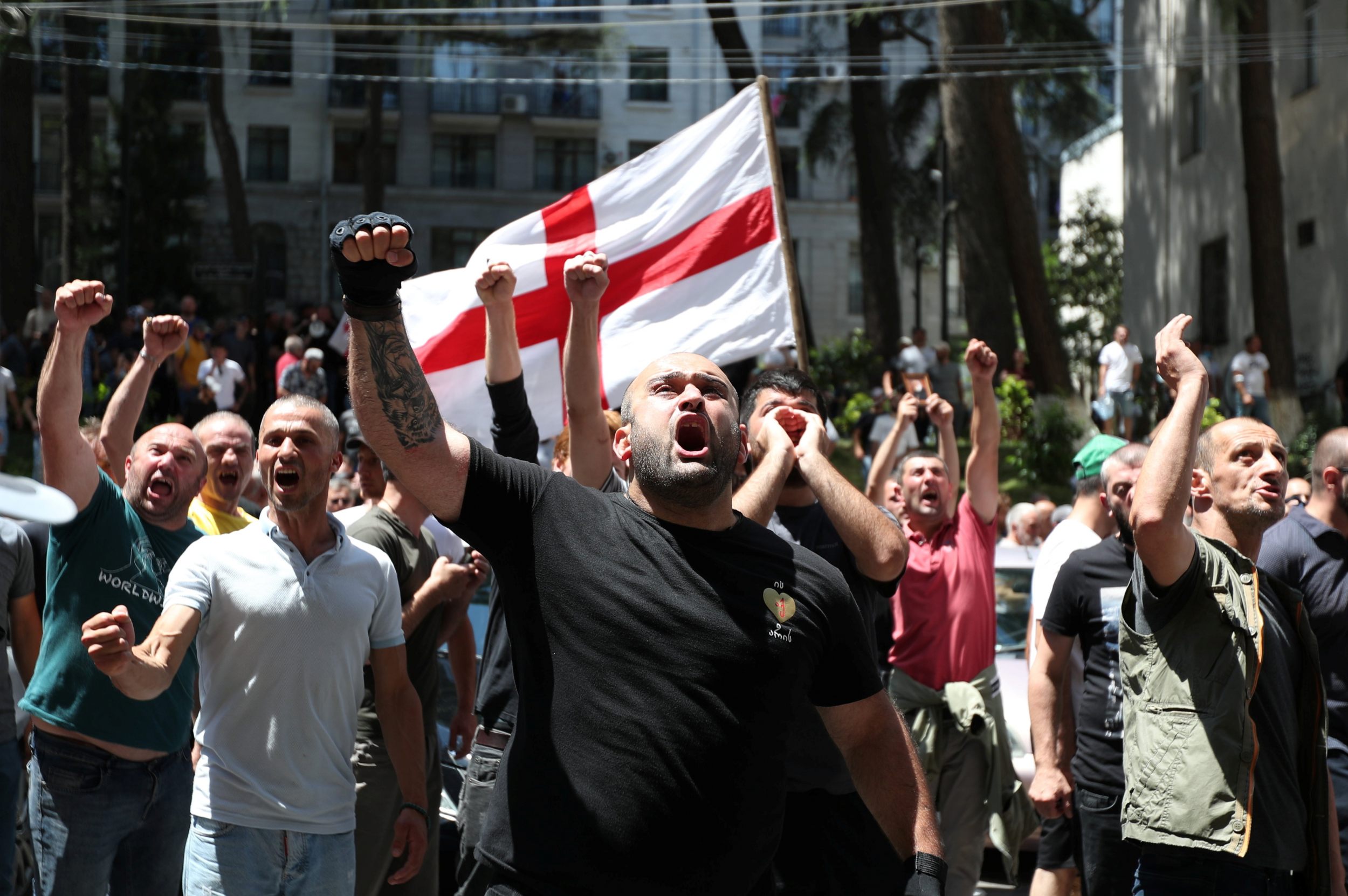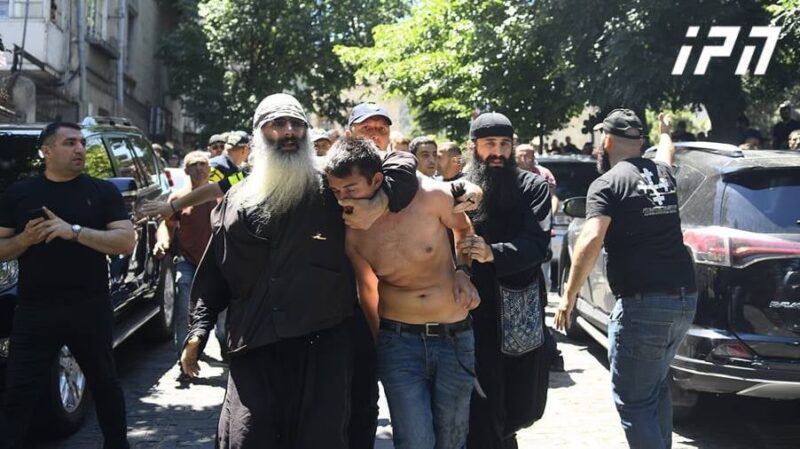Unpunished organizers of LGBT+ violence in Georgia
LGBT violence in Georgia
The Georgian Young Lawyers’ Association (GYLA) has issued a statement regarding the events of July 5-6, 2021. During that time, right-wing homophobic groups in Tbilisi instigated a violent rampage aimed at disrupting a gay parade. The primary victims were journalists, one of whom later passed away.
GYLA representatives emphasized that even three years later, the organizers and participants of this mass violence remain largely unpunished. While the Tbilisi City Court has handed down guilty verdicts to several attackers, not all responsible parties have been identified and held accountable.
Furthermore, investigative authorities continue to ignore the issue of government officials’ accountability for what happened. Therefore, on behalf of media representatives, GYLA has appealed to the European Court of Human Rights.
GYLA is representing the interests of 19 individuals affected by the events of July 5-6, 2021. Among them, 17 are representatives of various media organizations, while two were targeted due to their association with the LGBT community.

- Georgia’s ruling party proposes anti-LGBT law, similar to Russia’s
- The history of Georgia’s LGBT+ community’s struggle for equal rights and non-discrimination

“GYLA has been actively communicating with investigative authorities during this period. However, there has been no immediate response to the statements and complaints submitted, suggesting that the national-level investigation is ineffective.
Due to the inadequate protection of victims’ rights at the national level, GYLA has filed an appeal to the European Court of Human Rights on behalf of media representatives. The case concerns violations of Articles 3 (prohibition of torture), 10 (freedom of expression), 13 (right to an effective remedy), and 14 (prohibition of discrimination) of the European Convention. The response stage in the case has been completed, and the appellants await a decision from the Strasbourg Court“, – stated GYLA.
Both the Council of Europe’s Committee of Ministers and the European Parliament have called on government bodies to thoroughly investigate the events of July 5-6. A resolution dated June 9, 2022, underscores that impunity for those responsible for such actions is unacceptable under any circumstances, violating both Georgian national legislation and the state’s international obligations.
What happened on July 5?
On July 5, 2021, as part of Tbilisi Pride Week, a ‘Dignity March’ was scheduled to take place. The procession was planned to start at Rustaveli Metro Station at 6:00 PM. However, the patriarchate soon announced its own action aimed against the march. Clergy called on their supporters to take to the streets and defend the country from what they termed a ‘deviant lifestyle.’
In the morning of July 5, homophobic groups gathered outside the parliament building. In Tbilisi, a real hunt for media representatives was organized—radicals attacked 53 journalists.
The violence was directly encouraged by the clergy. ‘No to violence, but you must commit violence for the Motherland,’ said Deacon Spiridon to those gathered.
Observers claim that the actions of the perpetrators were prompted by a statement from then-prime minister Irakli Garibashvili on July 5. He placed responsibility for potential complications not on the participants of the violent action, but on the organizers of the ‘Dignity March,’ urging them not to hold the procession on Rustaveli Avenue.
The ‘Dignity March’ was canceled, yet violence on Rustaveli Avenue continued for several hours. Journalists reported that there were insufficient police officers on-site throughout the day. In response, the Minister of Internal Affairs stated that ‘as many law enforcement officers as possible’ had been mobilized.
Media representatives noted that the attackers specifically targeted them. Some journalists required serious medical assistance afterward.



















